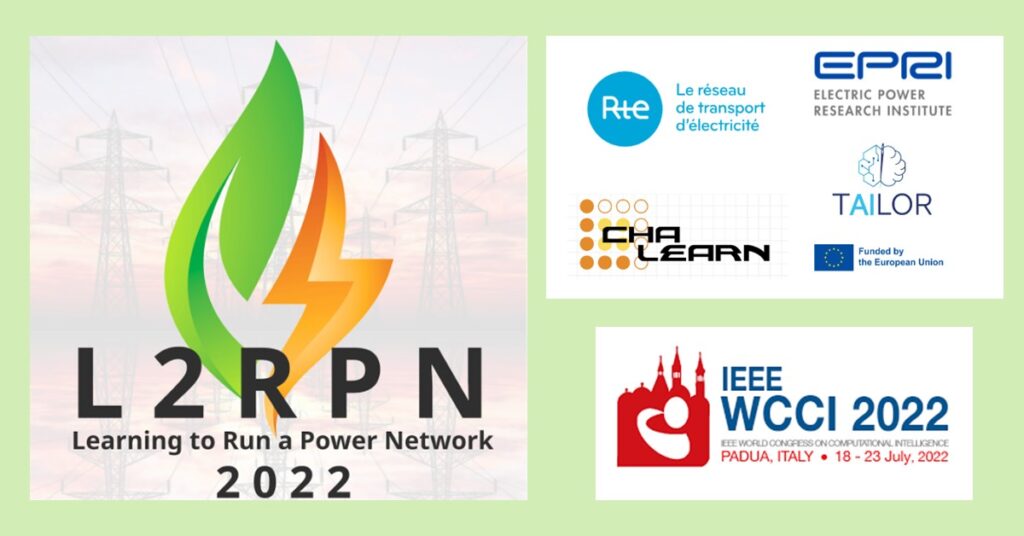Learning to Run a Power Network Challenge (L2RPN): Energies of the future and carbon neutrality
TAILOR scientists Isabelle Guyon, Sebastien Treguer, and Marc Schoenauer, from the TAU INRIA team in Saclay, are working together with leading industrial groups to create data challenges and hackathons for Trustworthy AI. The ambition is to jointly identify data sets that are suitable for advancing science, in a real-world industrial application setting.
The “Learning to run a power network challenge 2022” is such a challenge: It is concerned with AI for smart grids, and it has been built by RTE, the French Power Grid operator, and the TAU team, in collaboration with EPRI, CHA Learn, Google research, UCL and IQT labs.
AI for smart grids
The L2RPN 2022 challenge will run this summer, with an opening at the IEEE WCCI 2022. Power networks (“grids”) transport electricity across regions, countries and even continents. They are the backbone of power distribution, playing a central economical and societal role by supplying reliable power to industry, services, and consumers. Their importance appears even more critical today as we transition towards a more sustainable world within a carbon-free economy and concentrate energy distribution in the form of electricity. Problems that arise within the power grid range from transient brownouts to complete electrical blackouts which can create significant economic and social perturbations, i.e.de facto freezing society.
Can AI help grid operators?
Grid operators are still responsible for ensuring that a reliable supply of electricity is provided everywhere, at all times. With the advent of renewable energy, electric mobility, and limitations placed on engaging in new grid infrastructure projects, the task of controlling existing grids is becoming increasingly difficult, forcing grid operators to do “more with less”.
This challenge aims at testing the potential of AI to address this important real-world problem to anticipate future scenarios of supply and demand of electricity at horizon 2050, aiming as maximally using renewable energies to eventually reach carbon neutrality.
Timeline for the challenge
June 15, 2022: Competition opens (warmup phase, seek feed-back from participants)
July 5-Sept 13, 2022: Validation phase (feed-back on leaderboard)
Sept 14-30, 2022: Final evaluation phase (no new submission)
Read more on the L2RPN website.
